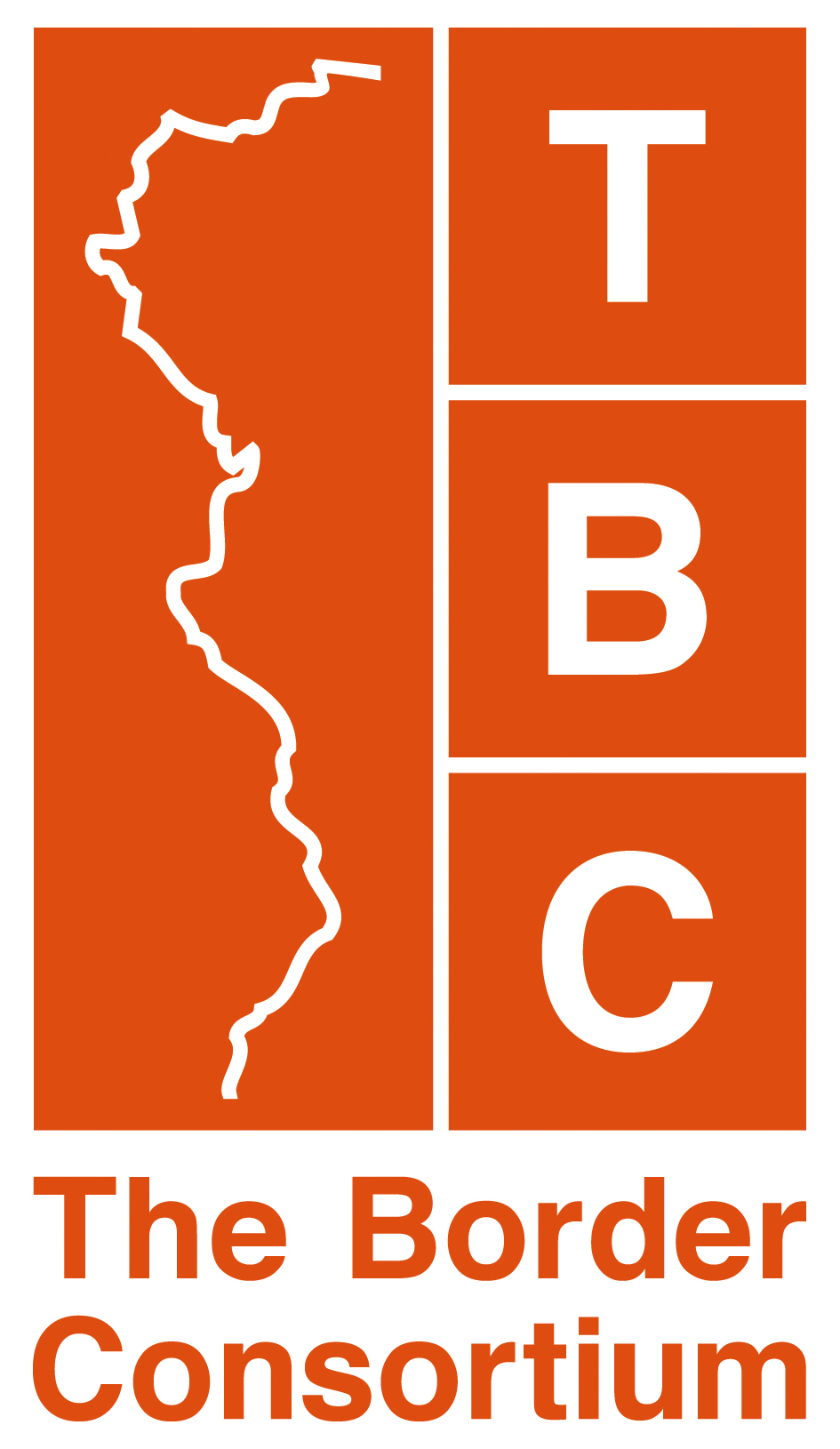Location
The Border Consortium (TBC), a non-profit, non-governmental organisation, is an alliance of partners working together with displaced and conflict-affected people of Burma/Myanmar to address humanitarian needs and to support community-driven solutions in pursuit of peace and development.
TBC is the main provider of food, shelter and other forms of support to approximately 92,000 refugees from Burma/Myanmar living in nine camps in western Thailand. It also supports recovery and community-driven development in conflict-affected areas in southeast Burma/Myanmar.
The Border Consortium is a Company Limited by Guarantee in England and Wales. Company number 05255598. Registered Office 35 Lower Marsh, London SE1 7RL. Charity Commission registered number 1109476.
Today (May 2018) the consortium’s members consist of nine international non-governmental organisations (INGOs) from ten countries. They are:
- Act for Peace, The National Council for Churches (NCCA), Australia
- Christian Aid, UK and Ireland
- Church World Service, USA
- DanChurchAid, Denmark
- Diakonia, Sweden
- Interchurch Organisation for Development Cooperation (ICCO), The Netherlands
- Inter Pares, Canada
- International Rescue Committee, USA
- Norwegian Church Aid, Norway
Members:
Resources
Displaying 1 - 5 of 10Changing Realities, Poverty and Displacement in South East Burma/Myanmar - 2012 Survey (TBC)
A significant decrease in forced displacement has been documented by community‐based
organisations in South East Myanmar after a series of ceasefire agreements were negotiated earlier this
year. While armed conflict continues in Kachin State and communal violence rages in Rakhine State, field
surveys indicate that that there has been a substantial decrease in hostilities affecting Karen, Karenni,
Shan and Mon communities.
In its annual survey of displacement and poverty released today, the Thailand Burma Border Consortium
Displacement and Poverty in South East Burma/Myanmar - 2011 Survey - TBBC (English)
EXECUTIVE SUMMARY (extract): Poverty alleviation has been recognised by the new government as a strategic priority for human
development. While official figures estimate that a quarter of the nation live in poverty, this survey suggests
that almost two thirds of households in rural areas of South East Burma/Myanmar are unable to meet
their basic needs. Impoverishment is particularly severe in the conflict-affected townships of Kyaukgyi
and Shwegyin in Pegu/Bago Region and Thandaung in Karen/Kayin State. Comparative analysis with
Internal Displacement and International Law in Eastern Burma
EXECUTIVE SUMMARY:
"Twenty years after the Burmese junta gunned down pro-democracy protesters, violations of human rights and humanitarian law in eastern Burma are more widespread and systematic than ever. Ten years after the Guiding Principles on Internal Displacement were submitted, the international response in eastern Burma remains largely ineffective in dealing with a predatory governing regime.
Internal Displacement in Eastern Burma, 2007 Survey
The Thailand Burma Border Consortium (TBBC) has been collaborating with ethnic community-based organisations to document the characteristics of internal displacement in eastern Burma since 2002. This year's research updates estimates of the scale and distribution of internal displacement, and documents the impacts of militarization and state-sponsored development, based on quantitative surveys with key informants in 38 townships.
Internal Displacement in Eastern Burma, 2006 Survey
“Both tragedy and hope are reflected in this fifth annual survey of internal displacement in eastern Burma. The tragedy is that such systematic and widespread violations of human rights and humanitarian law continue to occur with national impunity and a largely ineffective international response. Yet it is the ongoing commitment and courage of ethnic community-based organisations to support grassroots coping strategies and document the impacts of conflict, violence and abuse which inspires hope for the future of Burma.


